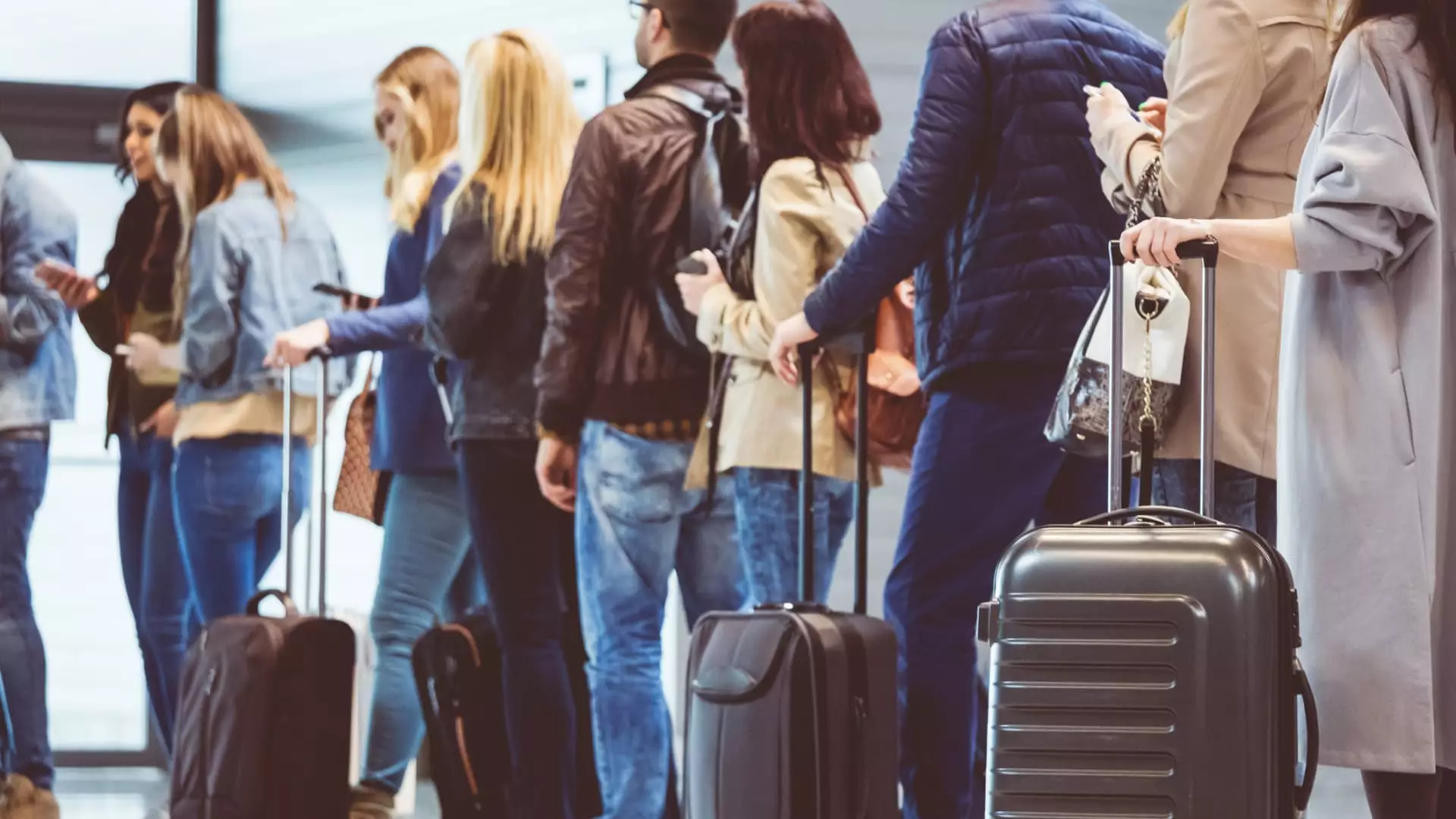For decades, Southwest Airlines built its reputation on a simple but revolutionary premise: passengers could hop onto a flight in the order they arrived, with no assigned seats and no extra fees to secure a preferred spot. This approach fostered a sense of fairness and spontaneity, creating a distinct identity in a crowded market. However, recent changes threaten to dismantle this customer-centric philosophy, as Southwest begins transitioning to a model that resembles its more profit-driven competitors: the introduction of assigned seats and tiered boarding groups.
This move is not merely a logistical adjustment; it signals a disturbing shift toward commodifying what was once an egalitarian flying experience. Passengers now find themselves faced with decisions that often feel more like gambling than choice—do you pay a premium for early boarding to secure space for your carry-on, or accept the risk of being sent to the back of the plane and relegated to a less desirable seat? Such practices erode the trust and goodwill that Southwest painstakingly built over decades, replacing it with transactional incentives that prioritize revenue over passenger comfort.
The Hidden Costs of “Choice”: When Flexibility Becomes a Paid Privilege
The crux of the new boarding process is the increasing reliance on paid upgrades—an unwelcome but predictable trend in the airline industry—yet it’s particularly disturbing in a company known for democratizing air travel. While passengers can still board in the traditional “first-come” manner, the likelihood of ending up nestled in the middle seat towards the back is now coupled with a financial decision: pay more for a chance at better overhead bin access and early boarding.
This shifts the airline’s value proposition from one of fairness and simplicity to a complex web of add-ons designed to extract more revenue. Travelers who want a “sure thing” often must shell out anywhere from $24 to $50 or more for priority boarding, and even more for seat upgrades that offer extra legroom or specific locations. This stratification of boarding privileges fuels inequality among passengers—those with wallets full of points or credit card perks enjoy a significantly better experience, while budget travelers are left to contend with the discomfort and inconvenience of crowded cabins.
Such stratification runs counter to the core principles of a liberal, centrist approach to policy—fairness, accessibility, and transparency. Instead of fostering an environment where all travelers are treated equally, airlines now create a tiered system based solely on willingness and ability to pay, alienating those who seek affordable, straightforward flying options.
The Value of Loyalty and Transparency in an Ethical Airline Industry
This development calls into question the ethical responsibilities airlines have toward their customers. Loyalty programs and elite statuses once served as a reward for frequent travelers, fostering a sense of community and mutual benefit. But now, these programs seem more like tools for those with deeper pockets, rather than genuine acknowledgment of customer loyalty.
The notion that paying extra for early boarding or premium economy benefits constitutes “value” becomes problematic when one considers broader societal implications. It encourages a mindset where air travel is increasingly a privilege for the wealthy, rather than a democratic service accessible to all. In turn, this stratification fosters mistrust, especially when passengers are led to believe that choosing cheaper fares inherently limits their experience, rather than empowering them through affordability.
The transparency that once distinguished Southwest from its rivals is fading. Passengers are often left to navigate a confusing terrain of fees, add-on packages, and ‘upselling,’ making it difficult to decipher whether they are making truly informed choices or simply falling prey to aggressive marketing tactics. A truly centrist, fair-minded airline should prioritize clarity, equitable access, and sensible service policies—principles that seem increasingly at odds with this new revenue-focused model.
Is the Cost of Convenience Worth the Diminishing Passenger Experience?
The practical benefits of these paid upgrades are debatable. While paying for early boarding might seem like a minor expense, it exemplifies a broader trend that cheapens the flying experience. The romantic notion of spontaneous, egalitarian air travel is sacrificed at the altar of profit. The airline industry’s obsession with ancillary revenue—charging for every conceivable add-on—undermines the notion that flying should be a reliable, straightforward means to transport people from one place to another.
Furthermore, the emphasis on boarding and seat-selection fees ignores the core issue: the comfort and dignity of passengers should not be contingent on their ability or willingness to pay extra. An airline service that fragments passengers into tiers based on their budget perverts the concept of an equal flying experience. It subtly pressures passengers into financial decisions just to secure basic amenities like overhead bin space, prioritizing marginal convenience over genuine customer care.
This commodification of air travel feeds into a culture where airline loyalty is increasingly transactional, and passengers are viewed primarily as revenue streams rather than customers with legitimate needs. Such a perspective risks alienating loyal customers, whom airlines should cherish as fundamental to long-term success.
A Critical Reflection on the Future of Airline Responsibility
Southwest’s change is emblematic of a broader industry trend—one that favors profitability over passenger well-being. While some might argue that premium pricing for early boarding is merely an extension of market competition, this reality masks a more troubling consequence: the erosion of the social contract between airline and traveler.
In an era where rising economic inequality diminishes access to quality services, airlines have a moral obligation to resist falling into the trap of excessive commercialization. Instead of catering solely to those who have the means, they should seek innovative ways to improve affordability and ensure that the flying experience remains fair and accessible.
Transparency and fairness are not just consumer preferences—they are the foundation of an ethical, sustainable aviation industry. Southwest’s recent policy shift pushes us toward a future where convenience is a paid privilege, further widening the gap between different classes of travelers. If the industry aspires to uphold the core values of fairness, equality, and service, it must reevaluate its priorities before it’s too late.

